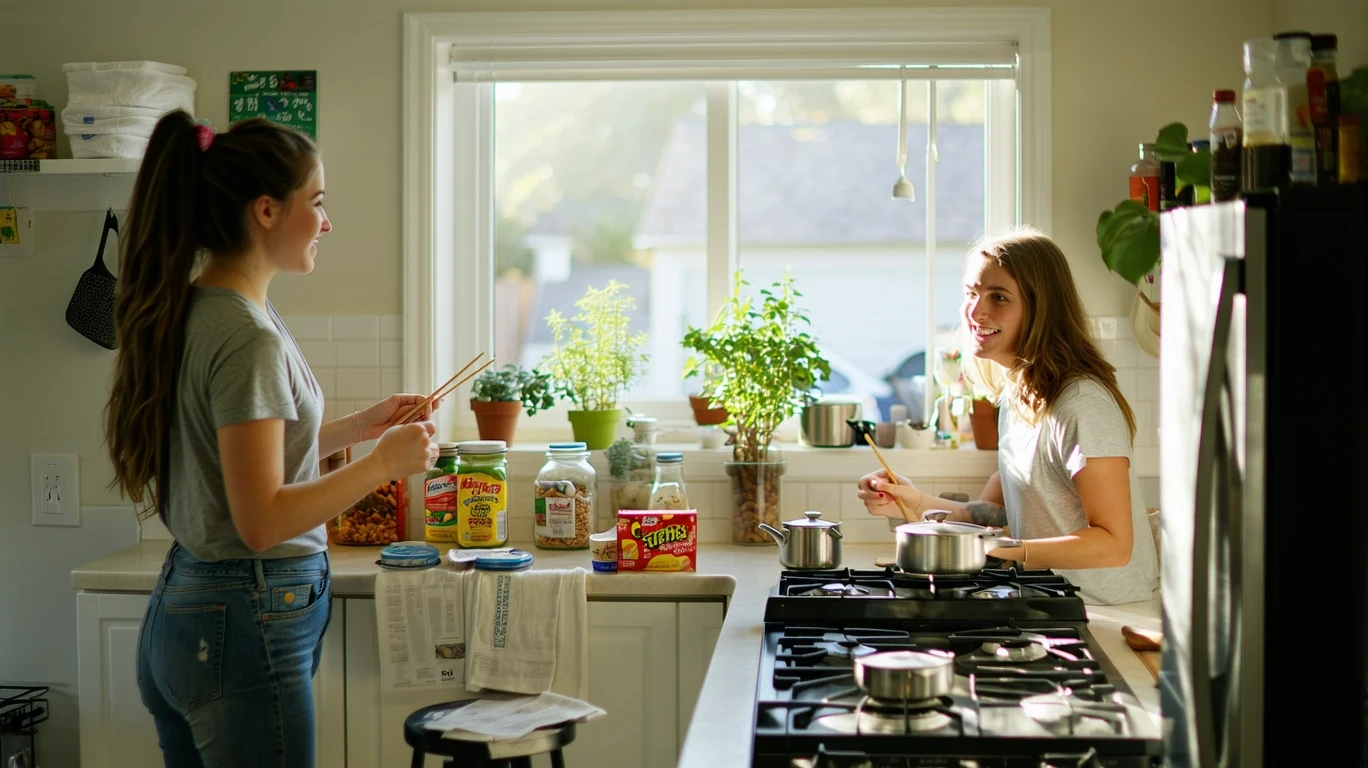
Budgeting Smarter in Mason
Whether you’re a new mover or a long-time resident, understanding how to budget for your monthly expenses in Mason is key to financial stability. In this Ohio suburb, housing and utilities often make up more than 55% of a household’s typical monthly budget. But depending on your lifestyle and income, your monthly budget in Mason can look quite different.
To help you plan smarter, we’ve put together realistic monthly budget examples for a few common household types in Mason. These estimates reflect typical costs in 2025, so you can get a clear picture of what it takes to live comfortably in this growing city.
What Real Budgets Look Like in Mason
Let’s dive into some real-world examples. The table below shows estimated monthly expenses for three hypothetical (but realistic) Mason residents:
| Expense | Jasmine (Single Renter) | Sam & Elena (Renting Couple) | The Ortiz Family (Homeowners) |
|---|---|---|---|
| Rent/Mortgage | $1,400 | $2,200 | $2,800 |
| Utilities | $180 | $280 | $450 |
| Food | $400 | $800 | $1,200 |
| Transportation | $120 | $500 | $800 |
| HOA/Fees | $0 | $150 | $350 |
| Miscellaneous | $400 | $800 | $1,200 |
| Savings | $500 | $1,200 | $1,500 |
| Monthly Total | $3,000 | $5,930 | $8,300 |
These estimates reflect common lifestyle costs in Mason for 2025. All income figures are gross monthly income (pre-tax).
As you can see, housing costs in Mason take up a significant portion of each household’s budget, from 47% for Jasmine up to 57% for Sam and Elena. Utilities, food, and transportation are the next biggest expenses.
Of course, these are just examples. Your own budget will depend on factors like your neighborhood, home size, and spending habits. But this gives you a realistic starting point for planning your monthly expenses in Mason.
Biggest Cost Drivers
So what drives up monthly costs the most in Mason? Here are a few key factors to watch out for:
- Seasonal utilities: Air conditioning can cause electric bills to spike in the hot summer months. Expect to budget more for utilities from June through September.
- HOA fees: Many neighborhoods in Mason have monthly HOA dues that can add hundreds to your housing costs. Factor this in if you’re buying a home.
- Rising rent: Mason is a desirable suburb, and rent prices have climbed in recent years. If you’re a tenant, prepare for potential rent hikes when renewing your lease.
- Commute costs: Many Mason residents drive to work in Cincinnati. Include gas, tolls, and parking in your monthly transportation budget.
Tips to Stretch Your Budget Further
Living in Mason doesn’t have to break the bank. With some smart strategies, you can often lower your monthly expenses without sacrificing your lifestyle. Here are some ideas:
- Shop around for groceries. Mason has a variety of grocery stores at different price points. Check out discount grocers like Aldi or Costco to save on food every month. See what you can expect to spend on groceries in Mason.
- Take advantage of off-peak utility pricing. Electric companies like Duke Energy offer lower rates during off-peak hours. Shift some of your energy use to these times to keep utility costs down.
- 🏆 Tip: In the summer, take advantage of Duke Energy’s free Home Energy House Call to get personalized advice on lowering cooling costs.
- Consider public transit. If you work in Cincinnati, taking the bus or park-and-ride from Mason can significantly cut your monthly transportation costs compared to driving.
FAQs About Monthly Budgets in Mason
Can you live in Mason on $3,000 a month?
Yes, if you’re a single person renting an apartment, $3,000 a month is doable in Mason. You’ll have roughly $1,400 for rent, $180 for utilities, $400 for food, and $120 for transportation, with $900 left over for other expenses and savings.
What’s a realistic rent budget for Mason?
Plan to spend $1,000-$1,600 for a decent 1-bedroom apartment or $1,400-$2,200 for a 2-bedroom. Prices are higher in downtown Mason and luxury complexes.
What’s a good total budget for a $4,000 monthly income in Mason?
On $4,000 a month, aim to keep your rent or mortgage under $1,600. Budget $200 for utilities, $500 for food, $300 for transportation, and $500 for miscellaneous costs. That leaves $900 for saving or paying off debt.
Planning Your Next Step
Moving to a new city is a big change, but you don’t have to figure out your budget all on your own. Use the examples and tips above as a starting point for mapping out your monthly expenses in Mason.
Remember, everyone’s circumstances are different. Take some time to consider your own needs, lifestyle, and financial goals. Then create a personalized budget that works for you. With smart planning, you can enjoy all that Mason has to offer without stressing over money.
